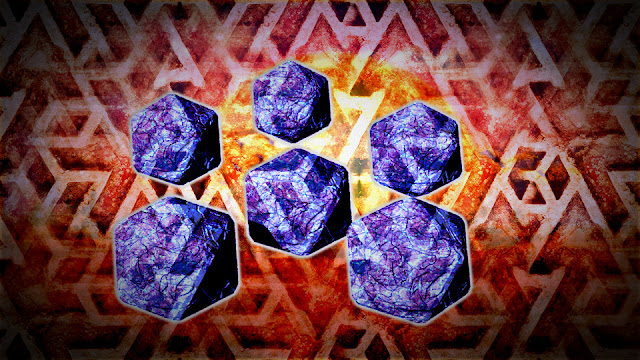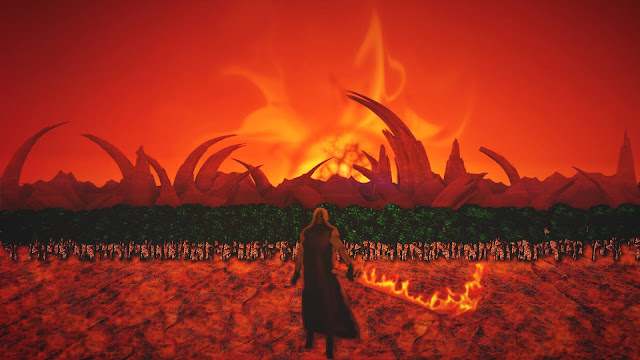The Storytelling of Empyrean (part 3)
In the first post of these series we established the following goals central to Empyrean RPG, but also, in my opinion, any storytelling game. Here we examine each of these goals, specifically in the context of Empyrean.
- Dynamic, dramatic, organic, character-centered narrative.
Empyrean lends itself well to this form of play because it centers on the characters. The manner of characters that the players will build will lay the foundations to the story that will be told. Because the players affect the background story of the Aethons, and their particular motivation that led them to incarnate in Arandor, they create themselves a deep storytelling current that they will further shape with their in-game choices.
- Ongoing story. Meaningful interaction. Tough calls, no clear-cut "right" or "wrong" choices.
Empyreans are ultimately human. Humans make mistakes. They get carried away. With such power in their disposal, their choices are dramatic and take center stage in the story.
Although there exist some hard moral lines that the players themselves will help define, there is also a great deal of room to explore about the morality of empyreans and the choices they may have to make. Such relative things as the greater good and the lesser evil are frequently part of great storytelling, and the same applies in Empyrean.
Ultimately, the players will get to reap the reward of the very seeds that they helped sow.
Although there exist some hard moral lines that the players themselves will help define, there is also a great deal of room to explore about the morality of empyreans and the choices they may have to make. Such relative things as the greater good and the lesser evil are frequently part of great storytelling, and the same applies in Empyrean.
Ultimately, the players will get to reap the reward of the very seeds that they helped sow.
There is an ongoing story in Empyrean already. The Empyreans came to Arandor to sever the power of Akronas and save Yrion and its Destiny. But this is the story of Empyrean. Not the story the players have come to tell.
So Empyrean is about telling your own story within a broader context. It provides the questions that you help to answer. It is the personal struggle as an aspect of the cosmic struggle. It is the Aethons' struggle to express their individual destiny in defiance of the Tyranny of Akronas.
As you will read the story of Empyrean in further installments to come, you will realize it sets the foundation for a very particular kind of storytelling, in line with the points we've established.
So Empyrean is about telling your own story within a broader context. It provides the questions that you help to answer. It is the personal struggle as an aspect of the cosmic struggle. It is the Aethons' struggle to express their individual destiny in defiance of the Tyranny of Akronas.
As you will read the story of Empyrean in further installments to come, you will realize it sets the foundation for a very particular kind of storytelling, in line with the points we've established.
- Character and story development are both non-linear and co-dependent.
The system is already being reworked to emphasize this aspect more clearly and deliberately. Even now, however, Empyrean is already built around the strong co-dependence of character and story, through the way experience rewards storytelling and storytelling creates experience.
Character development is certainly non-linear, and the story is the primary medium through which players can acquire new talents and powers.
Character development is certainly non-linear, and the story is the primary medium through which players can acquire new talents and powers.
- Relations with NPCs are diverse and complex.
This will become evident during future installments, as the various NPCs of Arandor or the various NPCs of Yrion from the character's immortal past are presented.
Even Aethons are actually very complex beings, with their own manner of politics.
- Story drives the game and utilizes the mechanics, the mechanics never get in the way of storytelling.
Empyrean is already built in such a way so that the mechanics facilitate storytelling. With its broader narrative approach, and the way it avoids very particular simulationism, it is geared towards internal consistency.
Nonetheless a great comprehensive list of changes is upcoming, in an attempt to establish even greater simplicity and stronger storytelling emphasis.
Nonetheless a great comprehensive list of changes is upcoming, in an attempt to establish even greater simplicity and stronger storytelling emphasis.




Comments
Post a Comment